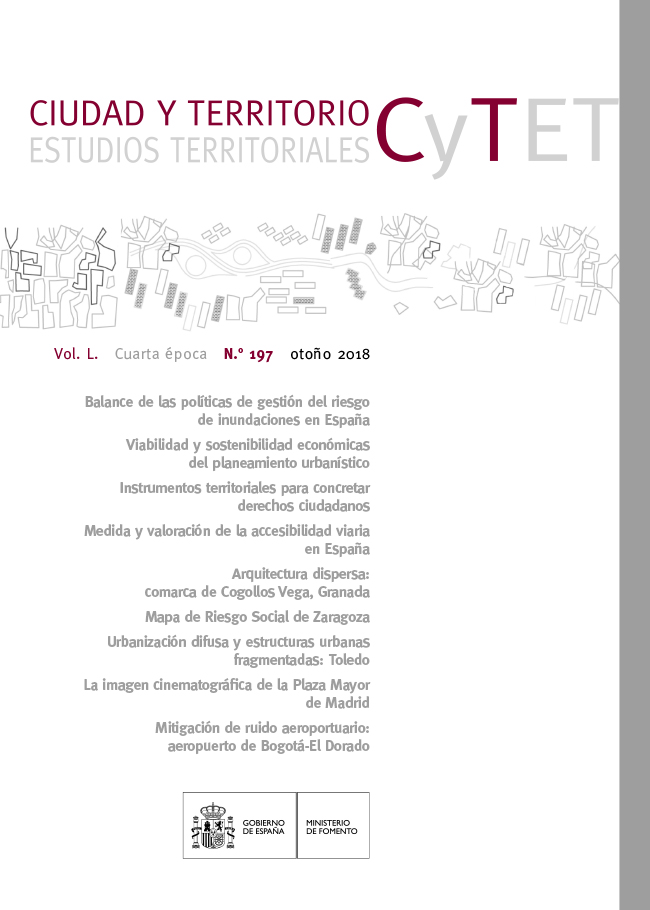Tools about empty housing in Spain. Comparative study
Keywords:
Empty housing, expropriation, evictions, regional and national legislationAbstract
The excessive amount of empty housing is a reality in our real-state park and
it involves some troubles of different nature: urban, social and economic, that the public
authorities have to face. During the worst years of the economic crisis, and still today, this
phenomenon contrasts with the vulnerability and social emergency suffered from a lot of
families that have lost their principal home due to an eviction. To overcome this situation,
ten regional governments have approved several laws about the social function of the
property, social emergency and access to housing, with measures of similar contents, to
mobilize the vacant housing units. This regulation contains measures to stimulate the
market, like the mediation in the rental housing market, but also enforcement measures
like fines or taxes on the property of vacant houses and even the compulsory rental or
temporal expropriation of unoccupied dwellings. These laws have been very controversial
and, in fact, they were brought to the Constitutional Court by the State which understood
that its national functions recognized by the Spanish Constitution, had been violated.
Nowadays the Constitutional Court has solved the judicial statements about Andalucía,
Navarra, Canarias, Cataluña y Valencia regulations, and has concluded about the
constitutionality of most of the precepts appealed but also certain state functions have
been confirmed, among them the possibility of developing a «housing law» that sets the
basic uniform conditions that guarantee the equality of all Spaniards. Due to this normative
production and the sentences issued, the paper studies the regional regulation since it is
very probable that the Court will solve the other issues in the same way although there are
new contents in some of the laws still pending judgment, which would require their own
express pronouncements.
Downloads
Downloads
Published
How to Cite
Issue
Section
License
Copyright (c) 2018 María Teresa Verdú Martínez

This work is licensed under a Creative Commons Attribution-NonCommercial-NoDerivatives 4.0 International License.
Considering the provisions of the current legislation on Intellectual Property, and in accordance with them, all authors publishing in CyTET give -in a non-exclusive way and without time limit- to the Ministry of Transport, Mobility and Urban Agenda the rights to disseminate, reproduce, communicate and distribute in any current or future format, on paper or electronic, the original or derived version of their work under a Creative Commons Attribution-NonCommercial-NoDerivative 4.0 license International (CC BY-NC-ND 4.0), as well as to include or assign to third parties the inclusion of its content in national and international indexes, repositories and databases, with reference and recognition in any case of its authorship.
In addition, when sending the work, the author(s) declares that it is an original work in which the sources that have been used are recognized, committing to respect the scientific evidence, to no longer modify the original data and to verify or refute its hypothesis. Author(s) also declare that the essential content of the work has not been previously published nor will it be published in any other publication while it is under evaluation by CyTET; and that it has not been simultaneously sent to another journal.
Authors must sign a Transfer of Rights Form, which will be sent to them from the CyTET Secretariat once the article is accepted for publication.
With the aim of promoting the dissemination of knowledge, CyTET joins the Open Journal Access (OA) movement and delivers all of its content to various national and international indexes, repositories and databases under this protocol; therefore, the submission of a work to be published in the journal presupposes the explicit acceptance by the author of this distribution method.
Authors are encouraged to reproduce and host their work published in CyTET in institutional repositories, web pages, etc. with the intention of contributing to the improvement of the transfer of knowledge and the citation of said works.








 Enlace a CyTET en Linkedin
Enlace a CyTET en Linkedin